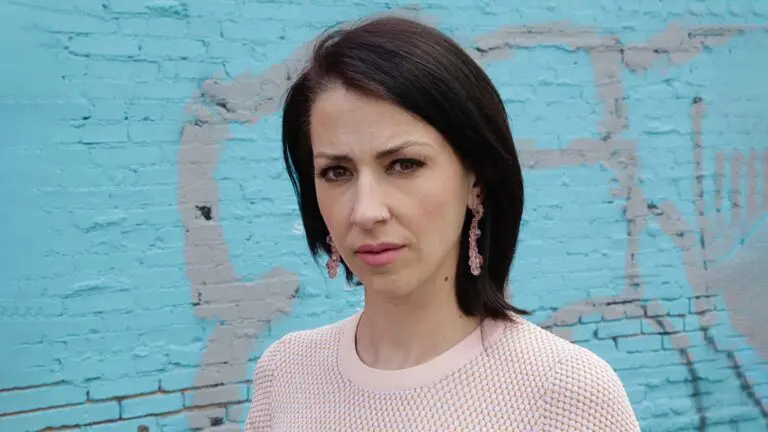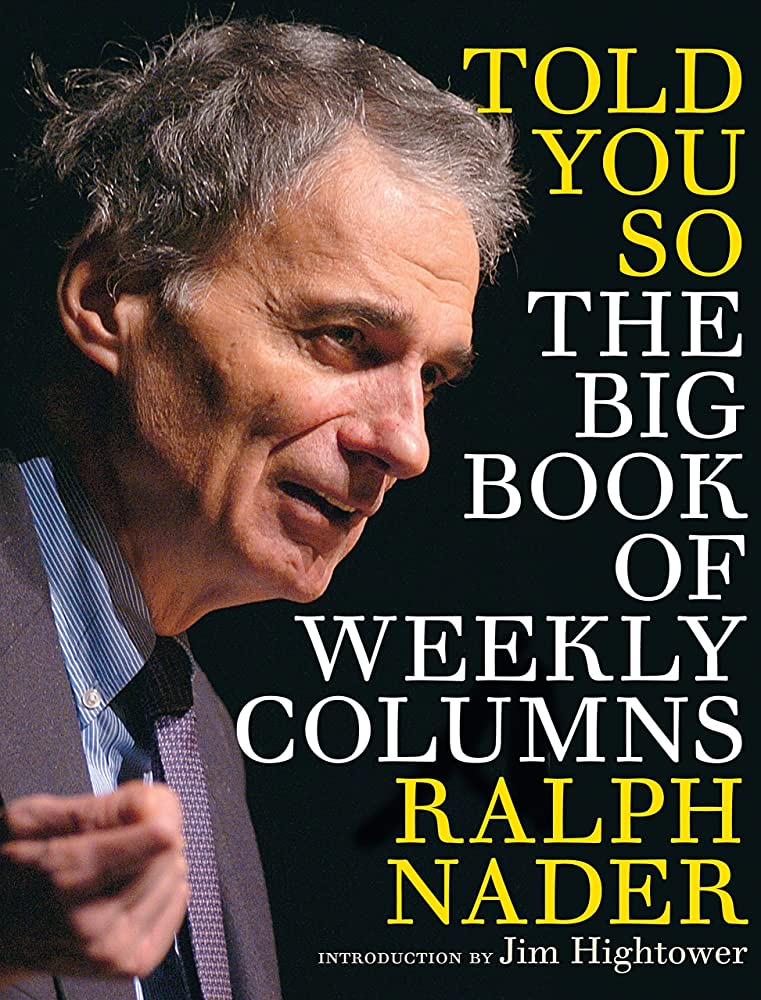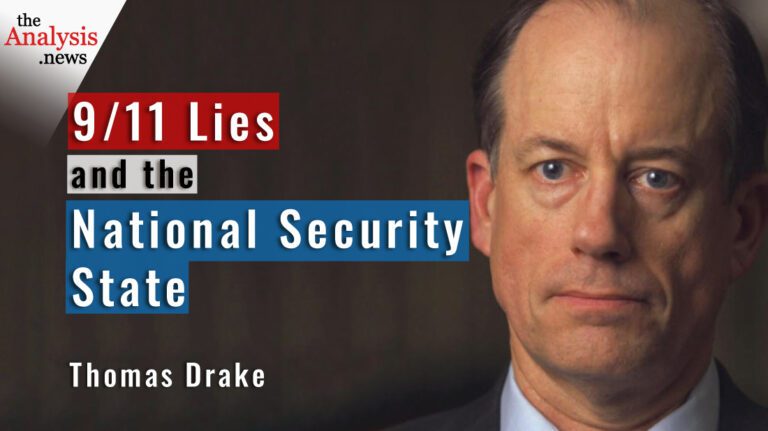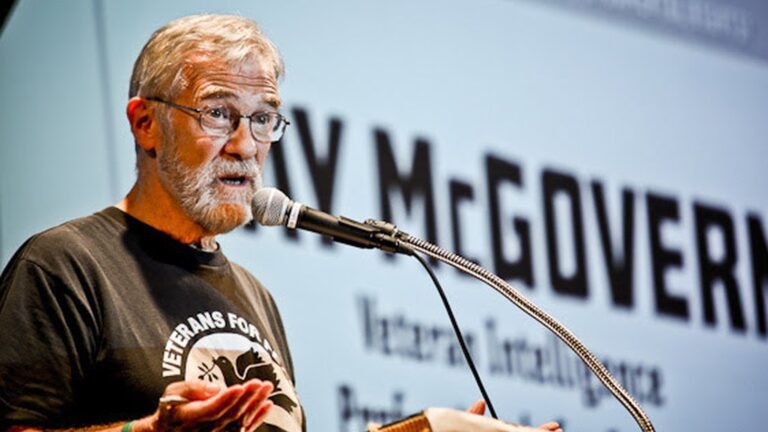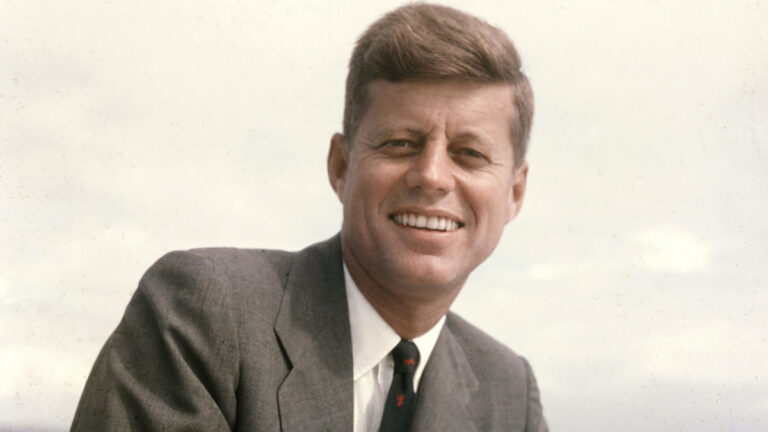This interview was originally published on December 18, 2014. Ms. Tarachansky talks about her journey from growing up in a settlement to opposition to the Israeli occupation.
PAUL JAY, SENIOR EDITOR, TRNN: Welcome back to The Real News Network, and welcome back to Reality Asserts Itself.
We’re continuing our series of interviews with Real News’s Middle East correspondent Lia Tarachansky, who’s on a tour screening her new documentary film On the Side of the Road.
Thanks for joining us again.
LIA TARACHANSKY, ISRAEL-PALESTINE CORRESPONDENT, TRNN: Thanks for having me, Paul.
JAY: So in part 1 we talked about beginning to unravel Lia’s identity and talking about the whole issue of identity, who we think we are and who we really are. And Lia avoided, to some extent, what I was asking and started talking politics, which we will get to. We have lots of time for that.
But I want to go back to you, because I think to talk about identity we should start with you and then kind of talk more broadly.
TARACHANSKY: Yeah, don’t throw me any softballs.
JAY: So you leave Israel at what age?
TARACHANSKY: Sixteen.
JAY: So you’re 16. At the time you leave, you’re a settler, you’re a Zionist.
TARACHANSKY: Totally.
JAY: I mean, any doubts? I’m asking. Any doubts at that point?
TARACHANSKY: None whatsoever.
JAY: So why do you go? Why do you go to Canada?
TARACHANSKY: To do university.
Well, I mean, we left because of my father’s health and a couple of things, but not for ideological reasons. We left. My parents found a job. My father wasn’t feeling well. And I went University.
JAY: So what happened?
TARACHANSKY: Well, my father died, my mother became even more a Zionist, and I went to University, and all of my Zionist identity unraveled.
I can tell you a story. On my first year of university, I walked into my campus, and one day in the very beginning of the winter semester, the university was transformed into one giant flag of Israel. It was flags of Israel everywhere, and it said Israel Week. And in the student union building there was this huge row of tables, and it said–you know, they had all these banners, and they had these titles: Israel is the most democratic state in the Middle East, Israel is the most gay-friendly state in the Middle East, Israel has the best tomatoes in the Middle East, dun-da-na-na-na. And I walk in. And, I mean, I was shocked and weirded out and creeped out and all kinds of things, ’cause it–to me it made as much–like, Guelph, where I went to school, is a tiny little agricultural university. I mean, I was studying biomedicine in the middle of nowhere, in the middle of, like, fields in Canada. Like, it’s the same as having, I don’t know, a Canada Week in some small college town in Zimbabwe. It made no sense to me. And so I walked past these people, and I just thought they looked weird, and I just–I don’t know. They just creeped me out and they pissed this me off because–.
JAY: These are mostly Canadian Jews, not Israeli Jews.
TARACHANSKY: Canadian Jews. Yeah. And in front of each banner stood this really excited 21-year-old, and dying to tell you about Israel. “Have I told you about Israel?”
And, now, the reason they pissed me off, I think, is because I was very much a Zionist and part of the project and Israel all the way, but I was a Russian in Israel. So I didn’t have any illusions about what Israeli democracy looks like. If you don’t fit into this box of what it means to be an Israeli, you’re out.
JAY: Which means Ashkenazi.
TARACHANSKY: Which means Ashkenazi, which means strong, which means a veteran. It means a fighter. If you don’t fit into that, you’re out. If you don’t serve in the army, you’re out. If you adopt and embrace your Arab identity, you’re out.
JAY: Now, this is at university.
TARACHANSKY: This is at university.
JAY: This is your consciousness at university.
TARACHANSKY: I just thought that they were ridiculous, because they had no idea what Israel is all about. I mean, it’s a complex society. And it’s not like we walk around in Israel asking each other, hey, are you a Zionist? I mean, we don’t question each other’s opinions on the conflict, really, while we’re growing up.
JAY: ‘Cause one assumes everyone’s in on the narrative.
TARACHANSKY: Yeah. I mean, the big debate in the ’90s was: are you for the Yitzhak Rabin plan or are you against it? But Yitzhak Rabin was assassinated in 1995. And with Netanyahu and the beginning of the Second Intifada, you kind of stopped debating these things.
No one ever asked me, what do you think? And so, when I came up to these excited 21-year-olds, I understood that the longest any one of them has been in Israel is one week on birthright. They didn’t know anything about us. They were driven on a bus funded by an American billionaire from one tourist site to the other. They met really nice soldiers. They met really friendly Israelis. They were told, this is your national homeland, welcome, you’re one of us. And they return back to Canada with the mission of representing Israel. They didn’t know a thing.
JAY: They have no idea what’s said about them when they turn their backs and get back on the bus.
TARACHANSKY: I mean, in Israel we have a lot of jokes about birthright kids, but I won’t get into that here. So on the second year of university–you know, I had a year to think of–I didn’t want to talk to them. I didn’t want to get involved. I didn’t want to ask anything. They just pissed me off. The second year of university, I had decided I’m going to talk to them. Now, I didn’t know what the hell I’m going to say to them; I just knew, I’m going to talk to them. And as I came to campus–and again Israel flags, Israel Week–and this time they had a girl who was standing in the middle of the Canadian winter, outdoors, on campus, and for a week straight she read the names of every single person killed in the Holocaust.
JAY: That’s not possible. I mean, I guess you can start, but you ain’t going to finish.
TARACHANSKY: Well, a lot of them are anonymous. And she stood there day and night and day for a week straight. So this was Israel Week for the Canadians, and this is what made me so upset is because to them they were presenting the Holocaust and this narrative of, like, Israel is the most blah blah blah.
And I think the reason it made me mad is because in Israel we don’t talk about the Holocaust. I mean, not really. The Israel government uses it a lot to justify a lot of things, but we don’t. We’ve never really opened up the trauma of the Holocaust. We talk about what happened in Auschwitz. But a trauma is not the event of rape. It’s the ten years after the rape. It’s the way that the rape has intertwined itself into your very psychology. And that’s essentially what the Holocaust was for us. It was a national rape. It was not even a national, ’cause it’s bigger than nationalism, but it was a total rape of our identity, and it completely and forever changed the way that we as Jews see the world, whether we and our family was killed in the Holocaust or the neighbors’. And it’s the same–amazingly, it’s–the irony here is incredible–is how the Palestinians were impacted by the Nakba, having been forced to be refugees all around the world. And so I was–to me it was like, why are you talking about the Holocaust? We won in the end. Look, we are so strong, we are in the Middle East, we have a nation. We won.
So as I was about to approach them with this big speech about na-na-na-na-na, at the very end of the tables was a different kind of table with a different kind of flag. And I thought, oh, maybe it’s not Israel Week; maybe it’s international week. So I went up to this table, and there was, like, a bunch of people there, and there was a bunch of books. And there’s this flag I’ve never seen before. And I came up to girl that was standing there, and I’m like, what’s this flag? And she goes–she stands up and she goes, hello, my name is Galia [spl?]. I’m an anti-Zionist Jew. And this is the flag of Palestine.
And I remember there was a book on the table that read “queer identity in the Arab world”. I don’t know why, but I remember that.
And I found myself just exploding on this poor girl, just standing there, yelling at her, defending these idiots. What? Why would you bring this Arab propaganda? Why can’t we have just one week to ourselves to talk about Israel and to show Israel to the world? Why would you bring this Palestinian terrorism here? And I’m standing there yelling at her, and I’ll never forget the look on her face. It’s just–you know, Canadians don’t yell. At the very best, they get aggressively passive aggressive, but that’s it.
JAY: Unless we play hockey. That’s the difference.
TARACHANSKY: Yeah, that’s where you get your aggression out. And I’m yelling at her and I’m yelling at her and I’m yelling at her, and she can’t get a word in. I don’t even think she said anything. I think she said, I’m an anti-Zionist Jew. I asked her, what is that? And she said something like, we believe in Palestinian human rights, I don’t know, something so banal that I would laugh at it if I saw it today. And yeah, and I just broke. You know? I mean, I’m standing there yelling at her. And I don’t know if you want me to explain why I’m yelling at her,–
JAY: Yeah.
TARACHANSKY: –but having had the privilege of hindsight. I think the reason I was yelling at her is because if you live in Israel-Palestine, we are in an active conflict–you eventually lose people. And if you live there long enough, you lose a lot of people.
JAY: You lost a friend.
TARACHANSKY: And yeah. So two years before that, I lost my best friend in a suicide bombing. And friendship in Israel is something totally different than here. You know, it’s not like I call you up and we go for coffee every Tuesday. You–your friends are your family. You’re out. We are a communal society. We’re not an individualistic society. So having lost her at the age–at such a young age, and–.
JAY: How old were you?
TARACHANSKY: I just turned 17. It’s not–it wasn’t the losing her as much as–’cause you lose people all the time. You know, kids getting–someone in the school always gets killed, someone’s parents always get killed. But it’s more that she blew up, and if you’ve been in a bombing, then there’s something about the smoke and the screaming and the mess and the chaos and the smell–.
JAY: This was a bus.
TARACHANSKY: Yeah, the bus blew up.
JAY: You were on the bus, too.
TARACHANSKY: No, I was outside the bus. If I was on the bus, I’d be dead. And there’s something about the smell of burning metal and the smoke and the charred body and the smell of burning–something about it is very specific.
And it all kind of happened, and I just went on with my life. And I didn’t talk about it and I didn’t think about it. It just happened. I remember just taking very light steps away and just kind of continuing very carefully, just continuing with my life.
And I’m standing there yelling at this girl in Canada, and I’m teleported to this moment, and I can smell it. And what was amazing is she’s standing there, and she comes from around the table, and she hugs me, and she says in Hebrew, it’s going to be okay, it’s going to be okay, it’s going to be okay, it’s going to be okay, it’s going to be okay. And I’m yelling at her, and the only thing I can think in my mind is everyone who died is your fault. And I don’t know why. Everyone I love. It’s your fault, ’cause you are defending this idea. And as we all know, the war of ideas is a lot more important than the war of bodies.
And that was the end for me. That was the end of something in which you could not ask, you could not touch, you could not criticize. There’s things you can criticize in Israel, but you can’t to criticize the bigger thing. You can’t talk about the bigger issues, the bigger problem. That was the end of that.
JAY: For you.
TARACHANSKY: For me.
JAY: You could start to criticize. But why?
TARACHANSKY: I broke.
JAY: For people that have that trauma, whether it’s the Holocaust, whether it’s having lost someone to terrorism, that usually equals revenge.
TARACHANSKY: Yeah.
JAY: Not I’m ready to think about all this.
TARACHANSKY: Yeah. And I used it a lot. I mean, before that, whenever I’d talk to people, I’d be like, you don’t know anything; I lost someone in the terrorism. Everyone lost someone in terrorism. You know, you had 9/11; we had a hundred 9/11s; the Palestinians had 10,000 9/11s. America and–you invade not just people’s homes; you invade people’s lives, you tear apart their very belief in security, their very belief that they have a place in this world where they can go to sleep and wake up in the morning. That’s how profound your violence that you project on the world is and the violence that we project on the Palestinians is.
My little tragedy is nothing compared to the bigger picture. And yet it is only when you go to the root of this thing, you go deep into it, and you crack it, and you rip it right open to the point that you–only from that point can you build. And I was so lucky that I had someone like Galia to question me, ’cause this is the end of something, but it has to be the beginning of something else.
JAY: So did that begin a relationship with her? Did you start to talk, discuss? I mean, how does–.
TARACHANSKY: She started–she stuck to me. She started giving me books. She started inviting me to lectures. She started forcing me to watch documentaries.
And the most important thing is she asked me questions. No one ever asked me real questions from a place of humility and empathy. People always told me what to think. They always told me that I was an Arab-hating Zionist. They never asked me, well, what do you think? Does any of what you say make sense to you? If you put A+B+C together, it doesn’t seem to make a lot of sense, right? They only want to kill us; all of them just want to kill us; they don’t have any history; no, we can’t build a Zionist state if we don’t erase their history; there’s nothing to erase, ’cause they were never here. No, they were here, because–. None of it makes any logical line of sense until you start questioning it. And this is what she did for me. She forced me to start asking questions.
And I think that the most profoundly effective thing that growing up in Israel and Zionism in general has managed to achieve is that it taught all of us what questions we cannot ask, to a point that it is now a part of the Israeli DNA, knowing what questions you cannot ask, because once you start asking these questions, everything starts to unravel.
JAY: I was about to say, the question she’s asking you to think about and you start to be willing to think about go to the very core of your identity. You have to start questioning, who the hell am I?
TARACHANSKY: You start having to ask very terrifying questions about what is your responsibility, what is your place.
JAY: So how long does it take for you to get to a point where you reach some kind of conclusion on all of this, I mean, where you would then call yourself–.
TARACHANSKY: I’ll let you know when I get there.
JAY: Well, the conclusion that you would–we’re talking about identity, and you would identify now as someone who’s opposed to Zionism. So where do you get to that, where you can actually say that out loud? I mean, now you’re saying it very loud, but when do you actually just say it to yourself, well, yeah, this was all wrong?
TARACHANSKY: I don’t think–yeah, I think I am more pro-equality than I am anti-Zionist. I have nothing against spiritual Zionism and the belief that Jews have a place in Jerusalem and all of that narrative. I have no problem with that. I think that it should be open for all to live in and shared equally. My issue is with equality. In Israel it’s–we have institutional legal segregation inside of Israel.
JAY: Okay. You’re jumping ahead. I want to give you a chance to say that, but in terms of you being–you start a process as a fully committed Zionist, and somewhere along the line you’re able to say, I am against–at the very least, I’m against the occupation, I’m against the state of Israel as it exists, I’m against this Zionist state.
TARACHANSKY: Well, what I was trying to say is there’s all these elements of inequality that I was completely unaware of. Yes, there’s a lot of denial, and we talked about that, but I didn’t know the facts, I didn’t know that we have more than 30 laws that on their surface, in their language, distinguish between Jewish and not-Jewish citizens.
So when Galia started me on this process of questioning, she introduced me to a lot of materials, and I could start asking questions. I started reading Israel’s laws. I started reading Israel’s land laws. I started seeking out all these holes in my education. And once you know, you can’t unknow. I mean, that’s the power of education. And it’s still–I mean, it’s like a spiral. She started me out of the cycle into a spiral, and I’m still on the spiral.
JAY: And when does your mother get wind of where you’re headed? ‘Cause she ain’t.
TARACHANSKY: My mother is–I’m so proud of her. I mean, it’s so hard. You know? I mean, so much has happened to her because she’s a Jew. And here is her daughter questioning the very essence of what she did to defend herself because she’s a Jew. So it’s very hard for her. But she’s now in a place, over the course of the ten years that it took me to get here, that we can at least touch on these things.
When my film premiered in North America, it premiered in Ottawa, which is where she lives now. And I wanted it to be that way so that she would come. And over the course of a lot of months, we kind of went back and forth, and eventually she said, okay, I’m coming. She called me up. I was in Israel-Palestine at the time, shooting my next documentary, and she goes, Lia, I’m coming to your premiere and I’m making a speech, and you cannot stop me. I’m making the speech. And I said, can I do anything to convince you to not make a speech? No, I’m making a speech. I’m like, well, it’s a film premiere in a festival–there’s not much space for a speech. No, I’m making the speech.
So the film rolled, and there was, like, 400 people in the crowd, and the first person to stand up after the film is my mother. And she unfolds the piece of paper, and she says, I am Lia’s mother. And everyone starts clapping. And she goes, I’m here to tell you about the Holocaust. And she ends up reading, like, a good 15 minute speech about the Holocaust and this film is possible because of the Holocaust and the profundity of the Holocaust. And Lia doesn’t even have–Lia would have had 70 cousins, but they don’t exist because their parents don’t exist, because their grandparents were killed in the Holocaust, and because of the Holocaust, we moved to Israel, and because of Israel, we have this film. So it’s important to her that I am–I keep my head on the ground about where she was coming from. And for me that’s very important, because it’s so easy to spiral away from where you come from.
So we work together. I question a lot of what she believes in, she questions a lot of what I believe. And I’m very proud of her that she’s making profound steps. And even during this war she lost a lot of friends, because she would ask them. You know, all of her friends are still Israel, and they would call, and we were all getting shelled with missiles from Gaza, and they would tell, oh, these Arabs, kill them all, turn Gaza into a parking lot. And every once in a while she’d ask something like, but they’re just people who want to live, no? And that’s it, the phone call ends right there, ’cause they don’t want to even ask that question. So I’m very proud of her.
JAY: One of the things I think people do forget–and you’re suggesting this–not all criticism–I mean, criticism of Israel is depicted by the Israeli authorities and propagandists as being anti-Semitic. And while not all criticism of Israel is anti-Semitic, some is.
TARACHANSKY: Some is. Yeah.
JAY: And I think that gets lost a lot in the narrative, and especially people who aren’t Jews and are–but they want to talk to Jews, but they don’t get how deep this is. And it’s not just the Holocaust. I mean, it does go back hundreds and hundreds and hundreds of years. It’s very deep. And some of the–like, I know on The Real News sometimes we have to go, when we do stories, that we actually had to turn the comments off on YouTube, it was getting–.
TARACHANSKY: I noticed you turned off the comments on all my stories, because so much of it is about Hitler.
JAY: Yeah, anything we do on Israel, the amount of absolute pure racism in the comments, we have to, like, constantly get rid of it. And I’m not suggesting in any way people should stop critiquing Israel because of that. People need to be mindful that this is a real thing, this kind of racism is real.
TARACHANSKY: Of course, and the exceptionalism of Israel as some kind of different thing. Israel is not actually unique in anything. Israel is maybe a unique combination of ethnocracy and colonialism, but there’s other ethnocracies and there’s other colonialisms. And, yes, Israel today is turning into an extremely racist, very fascistic, repressed society, but there’s a ton of other ones on the planet.
I think the reason why it’s important to focus on Israel-Palestine is, like I said in the first segment, Israel is a laboratory for a lot of these ideas. And we have to be rigorous in pointing out, outing out, and kicking out any form of racism from our movements, whether it be anti-Semitism or other forms of racism. And also the exceptionalization of anti-Semitism, I think, is out of proportion, and Israel uses it ad nauseam.
But I have to say that one of the only groups, one of the only global movements to have directly confronted anti-Semitism and said, this does not belong in our movement for justice and peace in Israel-Palestine is the boycott movement. In their very declaration, again and again and again they say, we do not support any form of racism in our midst, whether it be anti-Semitism or Islamophobia or anything else. And I think that we need to be very mindful of these things and we need call them out like any other form of racism.
JAY: Okay. In the next segment of our interview, we’re going to try to unpack what’s happened with the Israeli identity over the years, because when I was in Israel last, I don’t know, three, four years ago, I was astounded at the level of racism in Israel towards Palestinians.
TARACHANSKY: It’s gotten a lot worse, Paul.
JAY: I knew it, and, well, I know from your stories.
So please join us for the next segment of our interview with Lia Tarachansky on Reality Asserts Itself on The Real News Network.
Never miss another story
Subscribe to theAnalysis.news – Newsletter
“Lia Tarachansky is an Israeli-Canadian journalist and filmmaker born in the Soviet Union. Her video journalism covered American politics, the Middle East, and Canadian-indigenous relations.”



